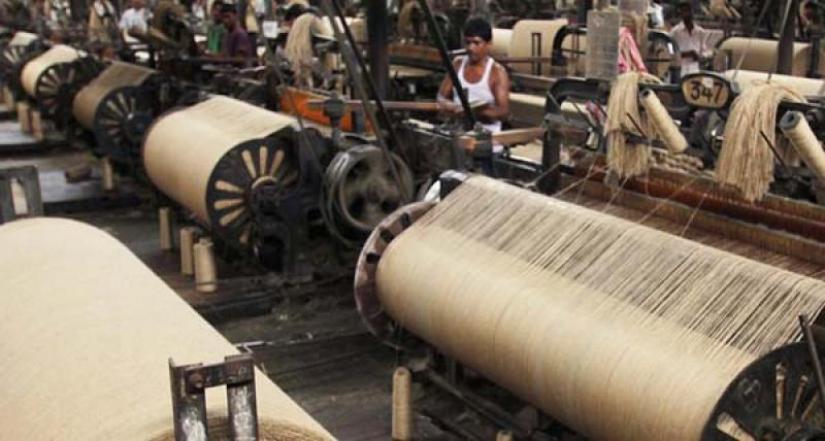 For eight reasons the state-owned jute factories are not seeing any profit: mismanagement, political rift, failure to buy raw materials on time, low quality of jute, excessive manpower, influence of collective bargaining agents (CBAs), outdated machinery and a variety of irregularities.
For eight reasons the state-owned jute factories are not seeing any profit: mismanagement, political rift, failure to buy raw materials on time, low quality of jute, excessive manpower, influence of collective bargaining agents (CBAs), outdated machinery and a variety of irregularities.
Despite government initiatives, the factories are not seeing any profit; on the contrary, they are unable to reduce the amount of losses incurred.
Jute and Textiles Minister Golam Dastagir Gazi has already instructed the relevant people to identify corrupt elements and take action against them.
Due to lack of funds, many jute mills are on the verge of closing down.
Leaders of the Bangladesh Jute Association say they are not getting the benefits of the government facilities.
According to them, they are being blocked by a wrong interpretation of the government order as a result, they are losing interest.
It is alleged that the gratuity money for the workers was also spent by the jute mill authorities.
Bangladeshi jute and products are being exported to Syria, India, Iran, Egypt, Tunisia, Turkey, Syria, Iraq, Thailand and other middle-east nations, according to the ministry.
The Export Promotion Bureau says that while 24 percent of the jute demand is met by government mills, the private ones meet the remaining 76 percent.
State-owned Bangladesh Jute Mills Corporation says that due to political unrest, jute export could not be increased in 2014-15 fiscal year. Since July last year, export of jute items has fallen by 20 percent. At this time, the export target of Tk 9.12 billion could not be met.
However, there were signs of improvement in the 2015-16 fiscal year.
Former secretary of the Bangladesh Jute Mill Association, a body of private jute mill owners, Barik Khan, says, “In the private sector there are 222 mills and they are running properly with 20 percent export incentive.”
But the situation is dismal at state-owned jute factories. At the Latif Bawani Jute Mill, workers often do not get paid on time and retired workers are deprived of gratuity.
From 1977 till 1996, 43 jute mills were left to the private sector with government retaining only 38, but in 1993, at the advice of World Bank, another 11 factories were shut down.
Asia’s biggest jute mill, Adamjee closed down in 2002. Currently, the state operates 24 factories.
 National
National
30721 hour(s) 17 minute(s) ago ;
Evening 08:11 ; Thursday ; Apr 18, 2024
State-owned jute factories in a rut
Send
Shafiqul Islam
Published : 06:00, Feb 18, 2019 | Updated : 06:00, Feb 18, 2019
Published : 06:00, Feb 18, 2019 | Updated : 06:00, Feb 18, 2019
0 ...0 ...
/tf/zmi/
Topics: Top StoriesExclusive
- KOICA donates medical supplies to BSMMU
- 5 more flights to take back British nationals to London
- Covid19: Rajarbagh, Mohammadpur worst affected
- Momen joins UN solidarity song over COVID-19 combat
- Covid-19: OIC to hold special meeting
- WFP begins food distribution in Cox’s Bazar
- WFP begins food distribution in Cox’s Bazar
- 290 return home to Australia
- Third charter flight for US citizens to return home
- Dhaka proposes to postpone D8 Summit
Unauthorized use of news, image, information, etc published by Bangla Tribune is punishable by copyright law. Appropriate legal steps will be taken by the management against any person or body that infringes those laws.
Bangla Tribune is one of the most revered online newspapers in Bangladesh, due to its reputation of neutral coverage and incisive analysis.
F R Tower, 8/C Panthapath, Shukrabad, Dhaka-1207 | Phone: 58151324; 58151326, Fax: 58151329 | Mob: 01730794527, 01730794528


